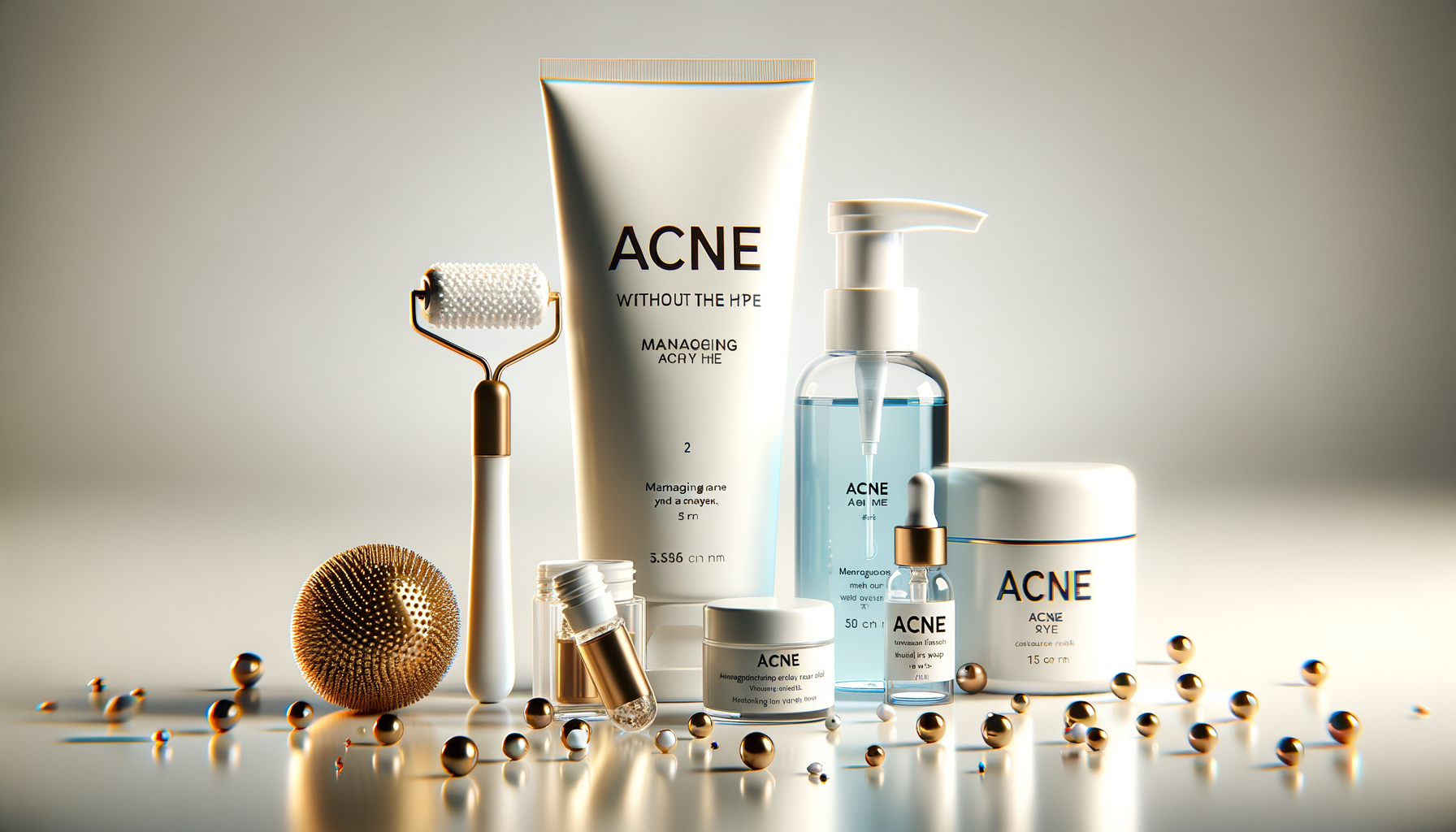Real Talk: Managing Acne Without the Hype
Dealing with acne can be frustrating — especially when every product promises perfect skin overnight. The truth? There’s no magic fix, but with the right approach, you can see steady improvements. It’s all about finding what works for your skin and sticking with it. Whether you’re dealing with the occasional breakout or something more stubborn, let’s break down a simple, realistic way to start managing acne — no wild promises, just honest progress.

Understanding Acne: The Basics
Acne is a common skin condition that affects millions of people worldwide, regardless of age. It occurs when hair follicles become clogged with oil and dead skin cells. While it is most prevalent among teenagers due to hormonal changes, it can persist into adulthood. Understanding the root causes of acne is crucial for effective management. Several factors contribute to acne development, including hormonal fluctuations, genetics, stress, and diet. Hormones, particularly androgens, can increase oil production in the skin, leading to clogged pores. Genetics can also play a significant role; if your parents had acne, you might be more prone to it as well.
Another critical factor is stress, which can exacerbate acne by triggering the release of hormones that stimulate oil production. Additionally, certain dietary choices, such as high glycemic index foods, have been linked to acne flare-ups. While these factors can contribute to acne, it is essential to remember that each person’s skin is unique, and what triggers acne in one person may not affect another. Understanding these underlying causes can help in tailoring an effective treatment plan.
Topical Treatments: A Closer Look
Topical treatments are often the first line of defense against acne. These products are applied directly to the skin and can be highly effective in managing mild to moderate acne. Common ingredients in topical treatments include benzoyl peroxide, salicylic acid, and retinoids. Benzoyl peroxide works by killing bacteria on the skin and reducing inflammation. It is available in various strengths and formulations, such as gels, creams, and cleansers. Salicylic acid, on the other hand, helps to unclog pores by exfoliating the skin and reducing oil production.
Retinoids, derived from vitamin A, are another popular choice for acne treatment. They promote cell turnover, preventing the clogging of pores and reducing inflammation. While topical treatments can be effective, they often require consistent use and may take several weeks to show results. It’s essential to follow the instructions carefully and be patient. Additionally, these treatments can sometimes cause side effects, such as dryness or irritation, particularly in those with sensitive skin. Consulting with a dermatologist can help determine the most suitable topical treatment for your specific skin type and acne severity.
Oral Medications: When to Consider Them
For more severe cases of acne, oral medications may be recommended. These are typically prescribed when topical treatments have not provided satisfactory results. Oral antibiotics, such as doxycycline and minocycline, are commonly used to reduce inflammation and bacterial growth. They are often used in combination with topical treatments to enhance effectiveness. However, prolonged use of antibiotics can lead to antibiotic resistance, so they are usually prescribed for a limited time.
Hormonal therapies, such as oral contraceptives and anti-androgens, are another option for women with acne. Birth control pills can help regulate hormones that contribute to acne, while anti-androgens like spironolactone reduce the effects of androgens on the skin. These medications can be particularly effective for women experiencing hormonal acne. It’s important to discuss potential side effects and risks with a healthcare provider before starting any oral medication. Each person’s response to treatment can vary, and a healthcare provider can help tailor an appropriate plan based on individual needs.
Natural Remedies: Exploring Alternative Options
In addition to conventional treatments, many people seek natural remedies for acne management. While scientific evidence supporting the efficacy of natural remedies is limited, some individuals find them beneficial. Tea tree oil is a popular natural treatment known for its antimicrobial properties. It can be applied topically to reduce acne-causing bacteria. Additionally, aloe vera is often used for its soothing and anti-inflammatory effects, which can help calm irritated skin.
Dietary changes, such as reducing sugar and dairy intake, have been suggested to improve acne for some individuals. Incorporating foods rich in omega-3 fatty acids, zinc, and antioxidants may also support skin health. It’s important to note that natural remedies may not work for everyone and are best used in conjunction with other treatments. Consulting with a dermatologist before trying new remedies can help ensure they are safe and suitable for your skin type. While natural remedies can be part of an acne management plan, they should not replace evidence-based treatments, especially for severe cases.
Building a Skincare Routine: Consistency is Key
Establishing a consistent skincare routine is crucial for managing acne effectively. A well-rounded routine should include cleansing, treating, and moisturizing. Cleansing the skin twice daily helps remove excess oil, dirt, and impurities that can contribute to acne. It’s important to choose a gentle cleanser that does not strip the skin of its natural oils. After cleansing, applying targeted treatments, such as those containing benzoyl peroxide or salicylic acid, can help address specific acne concerns.
Moisturizing is an essential step, even for those with oily or acne-prone skin. Using a non-comedogenic moisturizer helps maintain the skin’s barrier and prevent dryness, which can exacerbate acne. Sun protection is another critical aspect of a skincare routine. Using a broad-spectrum sunscreen daily helps protect the skin from UV damage and prevents post-inflammatory hyperpigmentation. Consistency is key when it comes to skincare. Results may take time, but sticking to a routine can lead to visible improvements in skin health over time. Regular follow-ups with a dermatologist can also help adjust the routine as needed for optimal results.